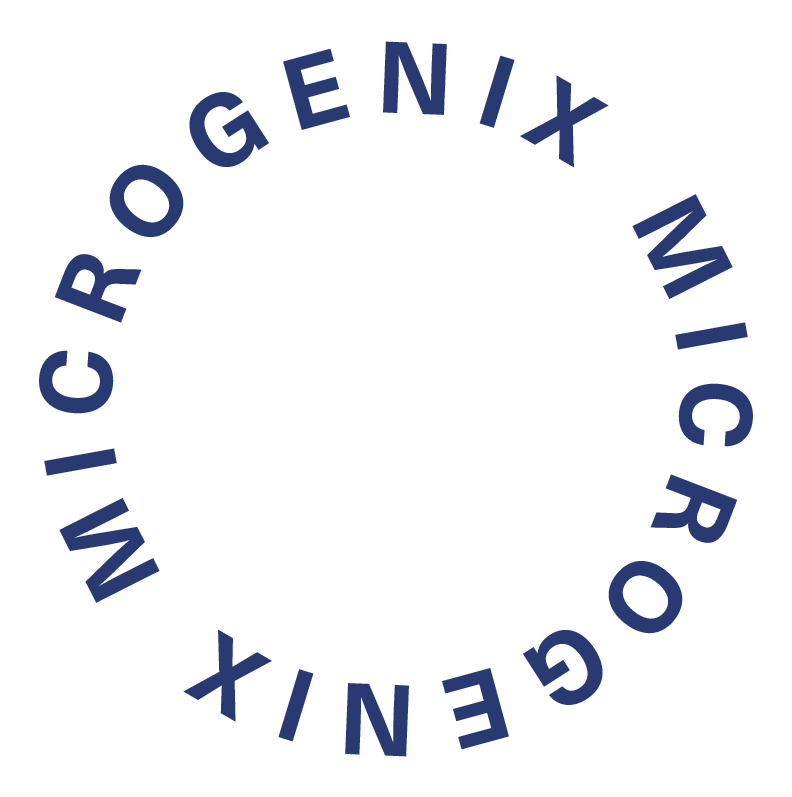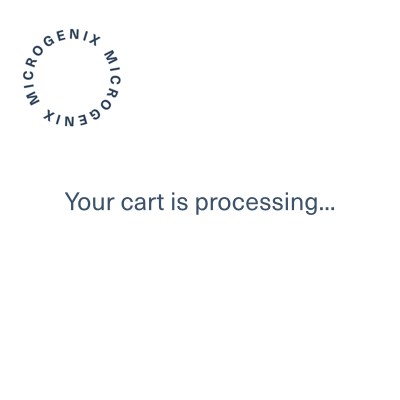Blog
The Brain Cleanse
If you’ve used social media in the past decade, you’ve likely encountered the popular terms “cleanse” and “detox.” These words are often used interchangeably by wellness gurus and influencers to achieve a common goal: to look and feel better in a short amount of time. While our current generation is heavily focused on making dietary changes and adding health supplements to improve their wellbeing, we may have unknowingly overlooked the most effective form of detoxification.
In today’s media-centric society, many people strive for physical attractiveness to fit within the increasing standards. While wellness trends have gained popularity, there is a dangerous contradiction between their purported benefits and the rising rates of mental health disorders linked to media dependence. Experts have even labeled excessive social media use as “poison” for the brain. Therefore, a “brain cleanse” may be a beneficial practice for everyone interested in a good detox.
A brain cleanse is different from a typical juice cleanse because it focuses on long-term sustainability and prioritizes brain health. While many people seek increased energy and mood from a detox, expensive and drastic diets have been debunked as useless and harmful. Brain detoxing, on the other hand, supports the entire body with the help of science-backed knowledge and mindful lifestyle changes. It does not aim for rapid weight loss but instead promotes physical and mental health as a main priority.
Neurotoxicity
A brain cleanse is geared at removing harmful toxins from the brain in order to achieve mental clarity, improved mood, heightened energy, and prioritize healthy cognitive function. Neurotoxicity is relatively common in today’s society, and can be caused by things like toxic substances, alcohol consumption, nicotine, stress, processed foods, and more. The severity of neurotoxins will vary from person to person based on genetic, age, and environmental factors, but is a common enough issue to say most young adults in modern society would find more long-term benefits in the removal of brain toxins, in comparison to any other celebrity endorsed detox.
Common symptoms of neurotoxicity may include and not be limited to:
- Chronic fatigue that is not improved by sleep
- Frequent headaches
- Low attention span, inability to concentrate
- Anxiety, depression, low mood
- Irritability
- Motor dysfunction
- Sensory issues such as numbness or tingles
- Cold sensitivity
- Restlessness
In simple terms, neurotoxicity is a term used to describe damage in the nervous system including the brain, the spinal cord, and the nerves. When neurotoxins invade the body, they can interfere with important cellular functions and damage our nerve cells, leading to a variety of negative symptoms such as the ones listed above and more.
It is important that you consult with a healthcare professional if you suspect excessive symptoms of neurotoxicity, so that you may properly identify the source of neurotoxin.
You should know the brain is equipped with its own built-in detoxification system which should technically do all the work for us, though common factors such as insomnia and stress can get in the way of our detoxification system working at its best. To better understand this process, meet the glymphatic system!
The Glymphatic System
Some might say there is no detox quite like the glymphatic system. The glymphatic system is considered the brain’s waste clearance system, and is most predominantly active during sleep. This system plays a crucial role in removing waste and harmful substances from the brain, which is vital in maintaining adequate brain health and cognitive performance.
Breakthrough research directed at understanding Alzheimer’s disease further is what led scientists to discover this unique brain network. In discovering this, researchers now believe that a properly functioning glymphatic system is crucial for preventing serious neurological conditions, as well as reducing cognitive decline. The glymphatic system works by welcoming cerebrospinal fluid (CSF) into the brain, flushing out toxic proteins like beta-amyloid and other harmful waste products.
The better we understand important functions such as the glymphatic system, the more we can utilize its activity to our advantage. There are certain factors that can harm the efficiency of our detoxification system, which can in turn lead to an accumulation of harmful substances in the brain and result in various neurological ailments.
The accumulation of toxins and metabolic waste in the brain can lead to inflammation and brain cell damage, contributing to the development of mental health disorders such as anxiety and depression. Fortunately, we may be able to strengthen our glymphatic systems and reduce neurotoxicity through certain lifestyle choices that emphasize brain health, benefiting our wellbeing when executed properly.
Cleansing the Brain
Much like other cleanses, the act of cleansing the brain and strengthening the glymphatic system involves supporting what the body already does on its own. A brain detox is focused on improving the brain’s natural detoxification process, which can often be slowed down by common lifestyle factors.
- Limiting Toxins
The first and most straightforward step is eliminating unnecessary toxins that require the glymphatic system to work harder.
Processed foods, binge drinking, and tobacco, are some of the most common toxins that directly exhaust the glymphatic system. Each of these commonly consumed toxins can impair the glymphatic system by increasing the accumulation of toxic proteins, and reducing the flow of cerebrospinal fluid. When toxins like these slow glymphatic function, we become more susceptible to neurotoxicity and cognitive decline.
In detox fashion, reducing the consumption of these toxins can improve glymphatic system efficiency relatively quickly. The longer we limit the use of these toxins, the higher chance our brain has at functioning optimally long-term.
2. Anti-inflammatories & Antioxidants
Inflammation has a negative effect on the glymphatic system, and can also increase neurotoxicity in the brain.
Functional mushrooms such as Lion’s Mane, Reishi, and Cordyceps are highly effective at reducing inflammation, and are a recommended component of a productive brain cleanse. Functional mushrooms are loaded with health boosting compounds that help reduce inflammation in the body, as well as antioxidants that help reduce oxidative stress in the brain.
Limiting inflammatory triggers is a great way to cleanse the brain and allow the glymphatic system to function more effectively. Reducing your intake of processed meats, excess sugar, and refined carbs can help reduce inflammation, as well as limiting stress triggers and finding the time to relax.
A 2021 study published in the journal “Journal of Neuroinflammation” analyzed the effects of inflammation on the glymphatic system in mice, finding that chronic neuroinflammation impaired the function of the glymphatic system, leading to a buildup of toxic proteins such as amyloid beta in the brain.
The combination of anti-inflammatory foods and adaptogenic mushrooms can make a significant impact on brain health by discouraging toxin buildup, and supporting the body’s detoxification process.
Functional mushrooms are now being observed optimistically as having distinct neuroprotective effects, which not only protects the body from harmful toxins, but defends the central nervous system against chronic neurodegenerative disorders.
3. Exercise and Hydration
Increasing the amount of exercise you do on a regular basis can have a positive effect on the glymphatic system, by increasing the flow of cerebrospinal fluid (CSF) and reducing inflammation. Adding a 30 minute walk or dance session to your daily routine is also a great way to manage stress levels, something that also plays a role in maintaining healthy brain function.
A study published in the journal Nature Communications in 2015 found that dehydration led to reduced CSF flow in humans, causing a negative effect on the brain’s detoxification process. Adequate hydration on a daily basis greatly reduces the risk of neurotoxicity, and reduces the accumulation of toxins in the nervous system.
4. Sleep
Of the most important factors relating to brain health and wellbeing, is yet again, sleep. Sleep is a crucial part of the glymphatic system, as it is during a night’s rest that the network becomes active and can begin flushing out toxins.
When we undergo sleep deprivation, we interrupt our body’s natural detoxification process. The disruption of proper sleep puts us at risk of neurotoxicity, inflammation, and issues with mental health, therefore practicing a healthy sleep routine is the most ideal thing you can do if detoxing is something on your radar.
For those dealing with insomnia or chronic stress, practicing healthy sleep habits can be challenging. Luckily, more and more promising studies are showcasing the benefits of mushrooms as means of effective sleep support. Reishi in specific, has been said to promote relaxation and induce deeper sleep.
Some studies have suggested that the consumption of Reishi mushrooms could be effective in the treatment of insomnia, and has a tranquilizing effect on the human mind. Reishi is also known to have anxiolytic and stress-reducing effects, which may also play a role in bettering sleep habits.
Adjusting your circadian rhythm by going to sleep and waking up at the same time everyday, makes a great impact on both your glymphatic system as well as your mental health. Our internal biological clock regulates various crucial functions in the brain and body, which directly controls our mood, cognitive performance, energy levels, and more.
5. Microdosing and Psilocybin
Microdosing involves taking small amounts of psilocybin or other psychedelic substances in order to experience the subtle effects without risk of hallucination or noticeable changes in perception.
The benefits of consuming small amounts of psilocybin on a scheduled basis include:
- Mental clarity
- Improved mood
- Raised awareness and empathy
- Creative thinking
- Improved focus
- Reduced symptoms of depression and anxiety
One study published in the journal Psychopharmacology in 2018 found that microdosing psilocybin was associated with improvements in convergent thinking, a measure associated with problem solving and creativity. Another study published in the journal Frontiers in Psychiatry found that microdosing psilocybin was associated with improvements in emotional regulation, positive mood, and overall well being.
The positive outcomes involved with microdosing in recent years has made a staggering impact on the mental health conversation, influencing others to give all-natural treatment options a try.
Research has suggested that psilocybin may have the ability to enhance neuroplasticity, by increasing the growth of new neurons in the brain and promoting new neural pathways. Neuroplasticity is a crucial part of brain development, and is the brain’s ability to both rewire itself and form new connections. It is thought by experts that impaired neuroplasticity is correlated with symptoms of anxiety and depression, while increasing neuroplasticity can improve wellbeing and restructure negative thought patterns.
When it comes to cleansing the brain of negative thoughts and creative plateaus, microdosing and/or full doses of psilocybin may assist in the reboot process and help rewire the mind. In doing so, integrating healthier lifestyle habits can be approached with ease as the mind opens up to new ways of thinking and processing in a creative and expansive manner.
Why?
The purpose behind a brain cleanse is to feel good, and perform better. When we perform better cognitively, we try harder at work, we become more social, and we feel genuinely happier. Some of us have become so accustomed to brain fog, fatigue, and irritability, that feeling low has become the new norm, but it really doesn’t have to be.
If you are struggling with brain fog, anxiety, fatigue, or lacking motivation—try prioritizing these brain boosting tasks for a month, and allow the brain to reestablish itself as a clearer and happier space where you can begin to flourish in other goals.
- Mitigate neurotoxicity by increasing daily water intake
- Improve circulation by committing to regular exercise, it will help assist the detoxification process.
- Supplement functional mushrooms such as Lion’s Mane, Reishi, Cordyceps, and Turkey Tail to help decrease inflammation and reduce oxidative stress
- Support your glymphatic system with 7-9 hours of sleep per night
- Limit alcohol and tobacco consumption to help reduce toxins
- Avoid processed foods and prioritize anti-inflammatory foods
- Indulge in more cognitive tasks/limit screen time
- Look into microdosing
- Increase time spent in nature/outdoors
- Prioritize relaxation
Before implementing new supplements or lifestyle changes, it is always important to consult a healthcare professional first.
The Bottom Line
Much like other internet cleanse trends, research is key in ensuring these methods are fit for you. Although there is no way to detox the human brain directly, gaining a better understanding of our natural processes can give us a higher awareness of our brains and bodies so we can then utilize them to our advantage.
As someone who has tried the cleanses, the detoxes, and the chemical supplements—being mindful and putting cognitive health first is yet to be a disappointment, as the benefits are seemingly endless.
Sources:
https://www.intechopen.com/chapters/79980
https://www.sciencedirect.com/science/article/abs/pii/S2468867319301609
https://www.urmc.rochester.edu/labs/nedergaard/projects/glymphatic-system.aspx
https://jneuroinflammation.biomedcentral.com/articles/10.1186/s12974-023-02753-6
https://pubmed.ncbi.nlm.nih.gov/18844328/
https://www.ncbi.nlm.nih.gov/pmc/articles/PMC3625995/
https://www.ncbi.nlm.nih.gov/pmc/articles/PMC4636982/
https://www.ncbi.nlm.nih.gov/pmc/articles/PMC3880190/
https://www.ncbi.nlm.nih.gov/pmc/articles/PMC8555286/
https://www.ncbi.nlm.nih.gov/pmc/articles/PMC6267140/
https://www.frontiersin.org/articles/10.3389/fpsyt.2021.724606/full#h4




